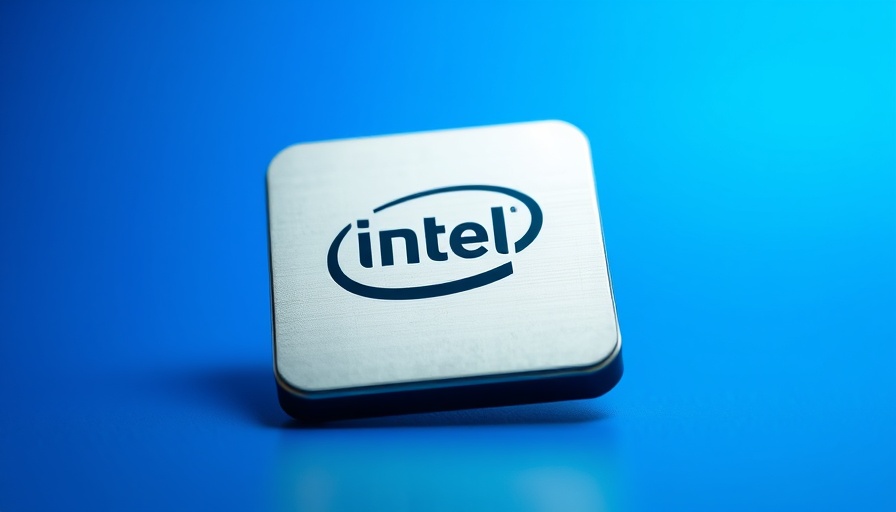
Intel and TSMC Join Forces in a Bold New Venture
In a significant development for the semiconductor industry, tech giants Intel and TSMC have announced plans for a joint chipmaking venture. This collaboration aims to revive Intel’s chip production capabilities and enhance its competitiveness in a rapidly evolving market. According to reports, TSMC will own a 20% stake in the new venture, which will operate out of Intel’s existing facilities. Instead of providing capital, TSMC is set to share its advanced chip manufacturing practices and offer crucial training to Intel employees.
The Stakes in Semiconductor Manufacturing
The semiconductor sector is at the heart of modern technology, fueling advancements in AI, mobile tech, and other critical industries. This partnership comes at a time when Intel is grappling with financial pressures and concerns about potential mass layoffs. The Trump administration is believed to have spurred these discussions, emphasizing the heightened need for America to regain its footing in semiconductor production. With TSMC being the world’s leading manufacturer of chips, Intel hopes to benefit from its expertise and innovative techniques.
New Leadership Amidst Strategic Changes
The arrival of Lip-Bu Tan as Intel’s CEO marks a turning point for the company. His mandate involves driving changes to steer Intel back to prominence in a fiercely competitive market. This joint venture aligns with his vision to leverage partnerships to bolster production capabilities and respond to global demand for semiconductors. Investors and tech enthusiasts alike are watching closely to see how these strategic adjustments will pan out.
Global Context: Why This Matters
This collaboration between Intel and TSMC is not just crucial domestically within the U.S.; it has profound implications for the global semiconductor landscape. As the demand for advanced chips surges across various sectors, particularly in AI and automotive tech, this joint venture could play a pivotal role in shaping future supply chains. Experts believe that if successful, this partnership might pave the way for new innovations and enhanced efficiency in chip production.
Challenges Ahead: A Road to Recovery
Despite the promising outlook, the road ahead is fraught with challenges. Intel must maintain high standards of production quality to safeguard its reputation while integrating TSMC’s co-manufacturing processes. Additionally, the landscape is filled with competitors, including Samsung and GlobalFoundries, which are similarly pushing the boundaries of semiconductor technology. A successful execution might not only prevent layoffs but could also position Intel as a market leader once again.
The Broader Implications of Semiconductor Collaboration
Collaboration among tech giants is becoming increasingly commonplace in the semiconductor industry. This trend highlights the importance of collective efforts to push the boundaries of technology and innovation. The Intel-TSMC venture could potentially lead to a ripple effect in the sector, encouraging other players to form alliances that leverage shared expertise and resources. This will likely result in enhanced technological advancements, benefiting consumers and businesses alike.
What’s Next for the Semiconductor Industry?
As the tech world watches closely, many are speculating about the future of the semiconductor industry. Will we see more collaborations between major players? What other game-changing alliances might spring from this merger? While uncertainties remain, the Intel-TSMC joint venture signifies a proactive response to the mounting pressures within the market, aiming to secure a competitive advantage through innovation and cooperation.
The Intel and TSMC partnership is a vital step in reshaping the future of semiconductor manufacturing, offering insights into market dynamics that could change the landscape for years to come. As developments unfold, stay tuned for updates on this exciting collaboration.
 Add Row
Add Row  Add
Add 



Write A Comment